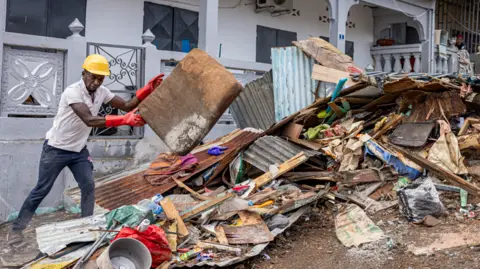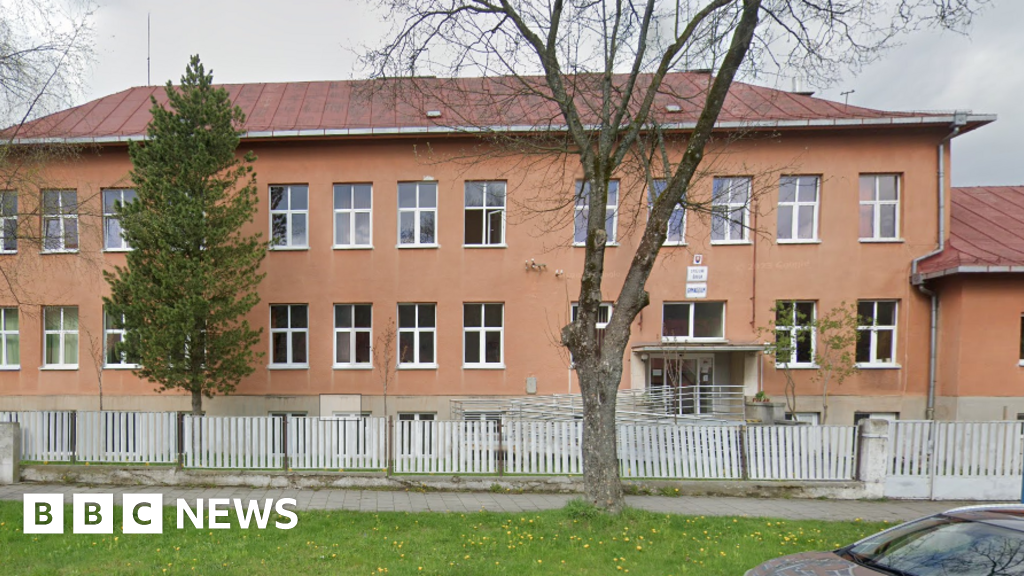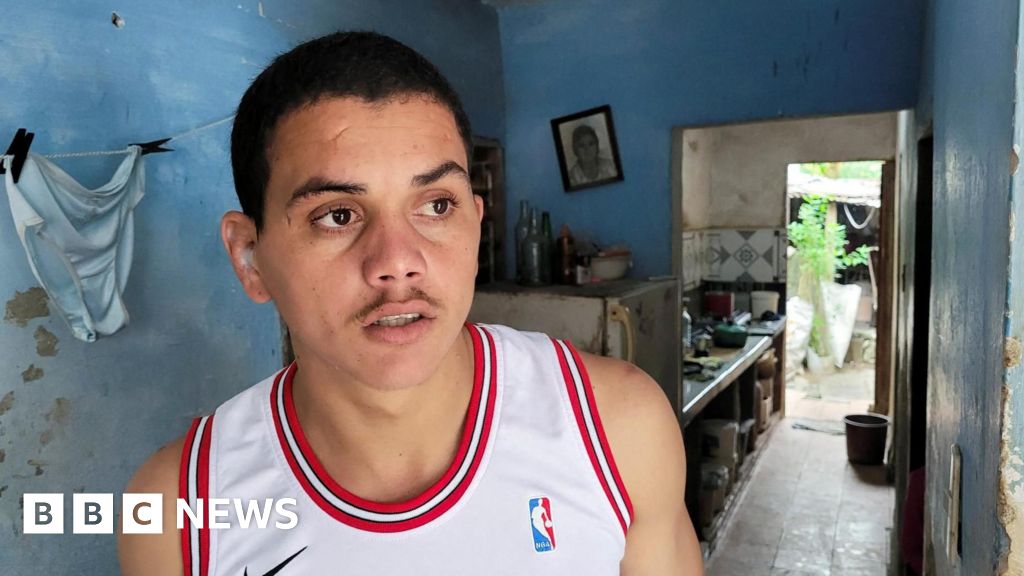ARTICLE AD BOX

 Getty Images
Getty Images
France is to hold a day of national mourning after Cyclone Chido devastated its Indian Ocean territory of Mayotte earlier this month.
French President Emmanuel Macron called for the nationwide remembrance during his visit to the island last week - where he was jeered by some islanders who criticised the slow delivery of aid.
It is feared hundreds, possibly thousands, of people died when Chido made landfall off Africa's south-east coast on 14 December bringing winds of up to 260 km/h (160mph) and 250mm of rainfall in the first 24 hours.
People across France will pay tribute and flags will be flown at half-mast in a show of solidarity at cities including Paris, Marseille and Lyon.
More than a week on from the storm survivors are struggling without water, communication and electricity while rescuers try to provide urgently needed assistance.
Mayotte, which lies between the African mainland and Madagascar, was already France's most impoverished territory before the cyclone struck.
Chido - the worst storm to hit the archipelago in 90 years - flattened areas where people live in shacks with sheet metal roofs and left fields of dirt and debris.
At least 31 people are reported by French officials to have died, but the death toll is expected to be much higher with thousands still missing.
After Mayotte the storm hit the African mainland, killing at least 94 people in Mozambique and 13 in Malawi.
Macron pledged to rebuild the island's devastated infrastructure and homes following his visit.
After touring the region in a helicopter to see the devastation, he said that Thursday was a day he would never forget.
During the visit he was heckled and faced calls to resign from locals who demanded more aid in devastated areas.
Macron responded by telling locals: "I had nothing to do with the cyclone. You can blame me, but it wasn't me."
Prime Minister François Bayrou said the tragedy of Mayotte is probably the worst natural disaster in the past centuries in French history.
More than 100,000 people remain in Red Cross shelters after their homes were destroyed.

 3 weeks ago
8
3 weeks ago
8








 English (US) ·
English (US) ·